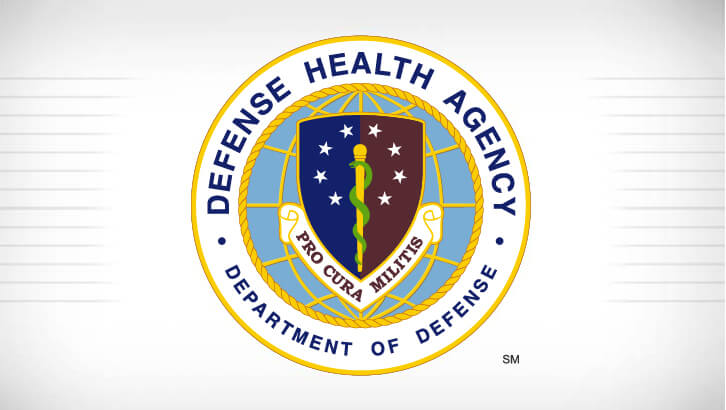Navy Spouse Seeks Mental Health Care through the MHS
 Navy Spouse Seeks Mental Health Care through the MHS
Navy Spouse Seeks Mental Health Care through the MHS
9/15/2021
By:
Katie Nelson 402nd Army Field Support Brigade
I've spent the last ten years of my life living with a mental illness, but my first experience with a mental health crisis sits in my mind so clearly it feels like it could have happened yesterday.
I had just started my second year of college, I didn't get into a class I so badly wanted to take, and I broke down. I called my mom, but there wasn't much she could do. Neither of us understood the reaction I was having to a seemingly minor hiccup. Her intuition must've clicked in when she said, "Go to the health center and tell them you need to speak to a counselor. I am not hanging up this phone until you are with a counselor."
Looking back, that singular moment probably saved my life. And thus began my navigation in the world of mental health.
A stigma around mental health still very much exists in the world. At first I was embarrassed that I saw a therapist. I didn't want to be medicated the rest of my life. I just wanted to be "normal," whatever that is.
It took a few years and some wise advice from my sister before I stopped feeling ashamed and embraced the steps I needed to take in order to take care of myself. "If someone had a heart condition and needed medication, they would take it every day, how is this any different?"
I promised myself I would never switch my health insurance to TRICARE. By the time I married my husband, an active duty Sailor, I finally had the perfect therapist and the right combination of medication.
My depression and anxiety was manageable and I didn't want to mess with a good thing. After all, like many other new spouses, I had heard horror stories of how the military cared for behavioral health. I worried I wouldn't have access to a therapist of my choosing or medication I knew already worked for me, and would constantly hit walls when I needed care.
Fast forward four years, and switching my care to the military has been one of the best decisions for my mental health.
 As a new Navy spouse (center right at my husband's re-enlistment ceremony), I was very hesitant to seek care for my mental health from the Military Health System. Much to my surprise, being part of the military community really has done wonders to my mental health. The care I receive from my local military clinic is better than I ever expected it to be (Courtesy Photo).
As a new Navy spouse (center right at my husband's re-enlistment ceremony), I was very hesitant to seek care for my mental health from the Military Health System. Much to my surprise, being part of the military community really has done wonders to my mental health. The care I receive from my local military clinic is better than I ever expected it to be (Courtesy Photo).
Being part of the military community really has done wonders to my mental health. The care I receive from my local military clinic is better than I ever expected it to be. My primary care manager, therapist and psychiatrist all have access to my file with each other's notes, taking the stress out of getting care because I no longer have to constantly rehash my life story with every visit. I honestly feel like I'm receiving care as a whole person as opposed to doctors addressing one issue at a time without looking at the full picture.
This year's theme for Suicide Prevention Month, "Connect to Protect," resonates with me because it is the connections I have with the people around me that keep me going through my hardest days. It's taken a while, but I've learned it's not only okay to reach out when my symptoms increase, it's necessary in order to take care of myself. Being open and honest with myself and those around me about how I'm truly feeling makes the tough days a little more manageable.
While the traditional health care aspect of the military community continues to exceed expectations, it's the people I've met along the way who have helped me the most. Some of my best friends are military spouses. They don't judge me when I need a little extra love or assurance when I'm having a depressive episode. They check in on me when my husband is deployed or gone for training. Most importantly, they understand the unique situations that come with being in a military family.
Really, the same can be said about the people I work with. I've been a Department of the Army Civilian for a year now. I love my job, plain and simple, but it's the soldiers and civilians I work with that have made juggling a full-time job, extended separation from my husband, and my mental health needs manageable.
Some people will never understand what it feels like to have such a disconnect between your logic and your emotions. But keeping those feelings close to you only makes them worse. It's been a long road but I've learned needing mental health care is nothing to be ashamed about.
It's not a secret to those around me that I see a therapist on a regular basis. I proudly take my medicine and share my experiences about it. I mean, can you really be best friends with someone if you haven't compared notes about what anxiety medicine works best for you?
It may sound like a talking point when the military says people are their number one priority, but it's been more than a box to check in my life.
Check in on the people you care about. Don't wait until someone is struggling. Let the people you love know they're on your mind. Not everyone is going to ask for help when they need it, and not everyone may know they need help. And if you are struggling with anything, no matter how trivial you think it is, don't let the fear of the stigma hold you back from accessing the resources you need.
Whether it be your spouse, best friend, battle buddy or even your commander, the people around you care.